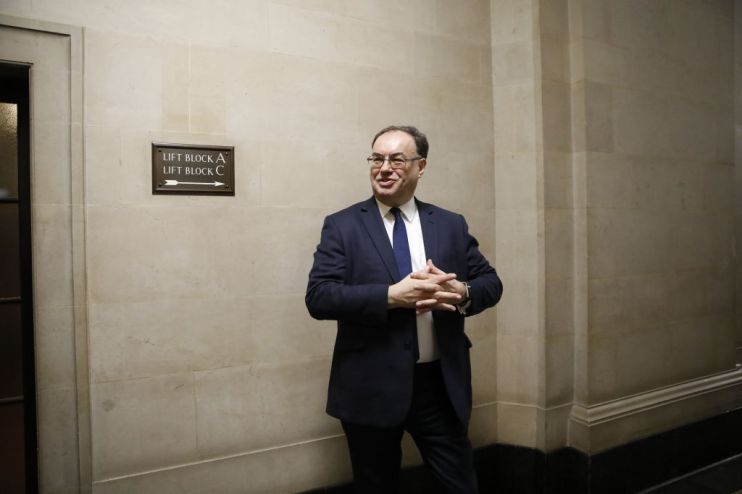Covid-19 recession will be ‘different’ to others, says BoE’s Andrew Bailey

The recession triggered by the coronavirus pandemic will be “different” to others, but some early signs of recovery are already apparent, Bank of England governor Andrew Bailey said.
Speaking at a panel discussion today, Bailey said he could already see some signs of economic recovery as lockdown restrictions are lifted in the UK, but warned there was still likely to be lasting damage.
“If there is any such thing as a normal recession… this one will be different. There will be elements of a faster recovery, because the first stage of the recovery is literally lifting restrictions and allowing people to go out,” Bailey said.
“And we see … evidence of elements of that recovery starting,” he added at the discussion, which was hosted by the World Economic Forum on Wednesday.
However Bailey added that the BoE expected the recovery to take longer than the simple lifting of restriction would suggest, as consumers were likely to be cautious about returning to restaurants and similar venues once they are able to.
Long-term damage to the British economy is also likely, he added, as even with government help some businesses would not survive the coronavirus shutdown. Other businesses could find that their business models – such as high-street stores or packed bars – no longer appeal to the public.
Before the Open newsletter: Start your day with the City View podcast and key market data
“We don’t know how much scarring there will be. I think it is reasonable to say there will be some but it is very hard to judge,” he continued.
Bailey did not discuss monetary policy at the panel ahead of a decision by the BoE next week, when many economists expect it to expand the asset buying programme it unveiled in March.
The UK is set to publish its first official data on economic output in April on Friday. Economists polled by Reuters expect output to fall more than a fifth compared to April the previous year.
Last month, the BoE outlined a scenario that showed economic output returning to its pre-coronavirus level by the second half of 2021.
However projections published by the OECD today suggested the UK will suffer the largest economic hit from the coronavirus pandemic among major nations this year.
The organisation predicted that could shrink between 11.5 per cent and 14 per cent depending on whether a second spike of infections is avoided.